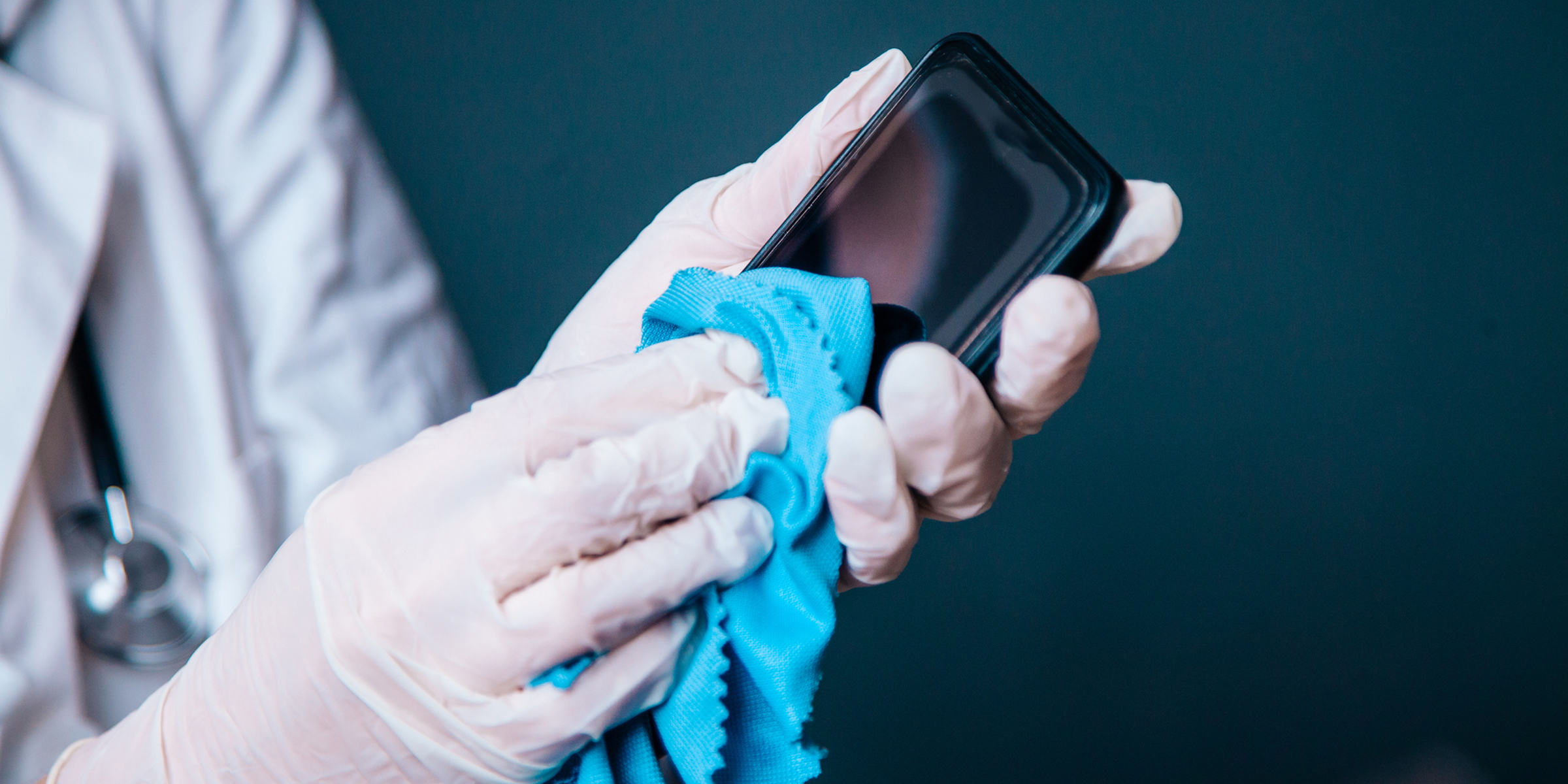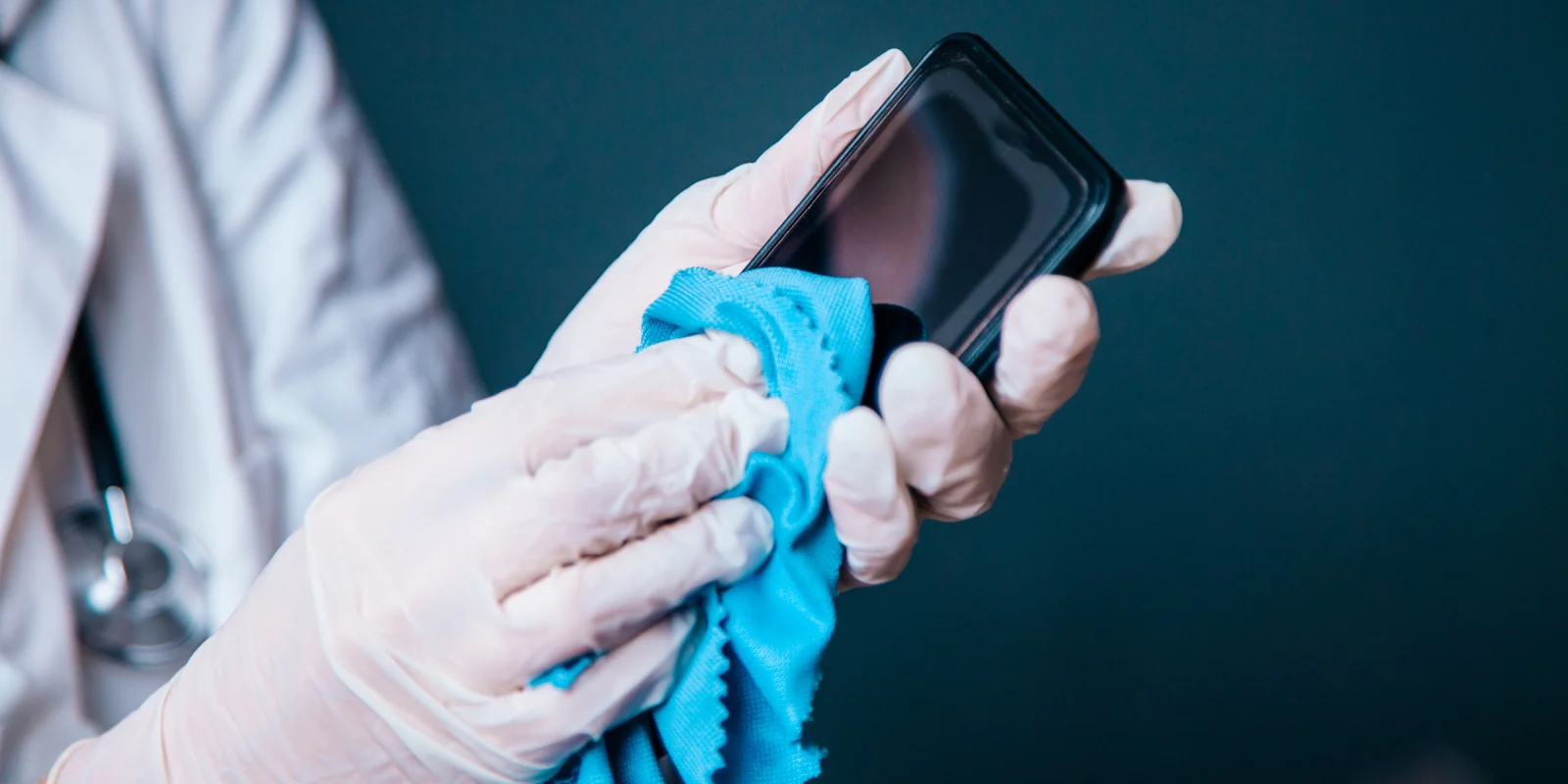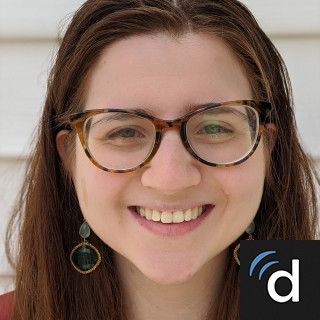
I call Mrs. Fleming. I have never seen her in person and I never will. I am calling about her husband, Mr. Fleming. Although he is a patient in the hospital, and I am the resident doctor taking care of him today, I have also never seen him, except briefly from the doorway. I just know his oxygen levels have been quickly dropping despite the forest green oxygen tank hanging behind him, and I hear from his nurse who is devotingly by his bedside, that he is struggling to breath. Mrs. Fleming tells me she hasn’t seen her husband in six weeks: the one week he has been in the hospital, and the five weeks his nursing home was on lockdown. She misses him. Before the world of coronavirus, she would visit him at his facility from noon to bedtime, never missing a day. “Our 65th wedding anniversary is tomorrow,” she excitedly says.
“I am so sorry Mrs. Fleming, but I think your husband is dying.” I can’t see her facial expression to try and say the right thing. I only hear a pause, and then she asks me questions about his oxygen levels and morning laboratory results. I feel a sense of relief; these questions I can answer from the computer screen in front of me. Then she asks me, “How does he look?” and I don’t answer, because I don’t really know, hoping she will lose her train of thought. But then Mrs. Fleming asks me “What is he saying?” and I still don’t answer. I desperately look around for the nurse seeing if she can help me. “I’m really so sorry, Mrs. Fleming. I worry your husband is dying.” I hear another pause before Mrs. Fleming says: “I’m sorry, who are you again?”
In the effort to preserve PPE and reduce transmission of the virus, many medical residents have been instructed by their residency programs to not go into a patient’s room with the coronavirus (unless the attending physician who is mandated to see every patient is not urgently available). While on the inpatient coronavirus team, I start each day on the inpatient medicine service with a list of patients and the four digit extensions to their hospital rooms. I disinfect the landline phone at my workstation, enjoying the smell of Clorox and wondering which provider sat there before me and if they were a carrier of the virus. This phone has become more precious than my stethoscope. I try calling these patient names one by one, and they mostly do not answer because they are elderly, hard of hearing, short of breath, bedbound, or simply exhausted. So I do what I never did before: provide medical care — ordering labs, imaging tests, and medications — on names, not people; names I will soon forget.
Like most doctors, I went into medicine to care for people. To observe, listen, feel, and connect. And like most doctors, I've spent my medical training frustrated by the administrative tasks that take us out of the exam room and away from the patient. I used to bemoan this to my friends over dinner. Now, those seem like the good days. My meager eight minutes with patients has become zero. If I do see a patient now, my face is obscured by a plastic barrier, and I am overcome with fear and guilt, calculating how quickly I can leave the room.
The first few days of the phone being my patients were not so bad. Patients could no longer see that I look younger than my age, so I had a nice break from the usual comment of “When did they let 16-year-olds become doctors?” It was easier to end a conversation that was going on too long, and I could multitask, which meant getting my work done before my kids’ bedtime. But now, more than two months into these new policies, I so deeply miss patients as people. I miss observing. I miss seeing what they ordered for breakfast, the color of their nail polish, the obscurity of their tattoos, the photos of their families lined along the windowsill. I miss connecting. I no longer have the hospital badge or the white coat to convey that I’m the doctor. I no longer have the messy hair bun on the top of my head and the warm smile to show that I’m a real person, too. I miss learning. I was always told by medical educators that the first few years of medical school are hard to remember because you are learning from books. “You’ll never forget medicine when you see a patient experience it.” But now I don’t see them, I don’t remember, I just move on. I have become that random person who calls you on the phone, sometimes too early and sometimes too late, to ask you if you feel short of breath. Understandably, you and your loved ones say to me, “I’m sorry, who are you?”
I usually try to write to inspire change. But with this new unexpected reality, I don’t know what to do. Wait until the coronavirus goes away? Use more PPE than I am supposed to? Advocate to change this policy? Remind myself that this isolation is worth saving lives? Try to put it in perspective and tell myself it’s even harder for family members who are not allowed at all to the hospital? I just don’t know.
I ended up giving my cell phone number to members of Mr. Fleming’s family, and spending many hours outside the hospital talking to them and hearing their thoughts. That is time I never thought I had to spare, but being a good doctor today requires more of me than before — because there’s less of you I can see.
So what I am trying to do is to forgive the constant hesitation and skepticism of patients and their families when they hear my voice on the phone. I try not to be mad when they yell at me, “You are giving up on my mom.” I get that they do not believe me. I try not to be offended when they scream, “You haven’t been taking care of him long enough.” I understand that they do not trust me. I try not to be surprised when they shout at me, “You don’t know how strong he is.” I know you don't want to listen to me. I know you don’t know me, but I hope one day you will.
All names and identifying information have been modified to protect patient privacy.
Click here to see more perspectives on COVID-19 from the Doximity network.
Click here for up-to-date news about COVID-19 on Doximity.






